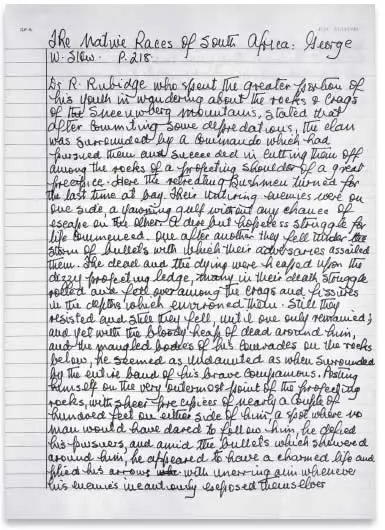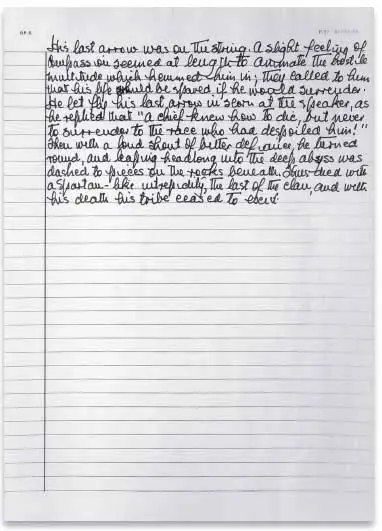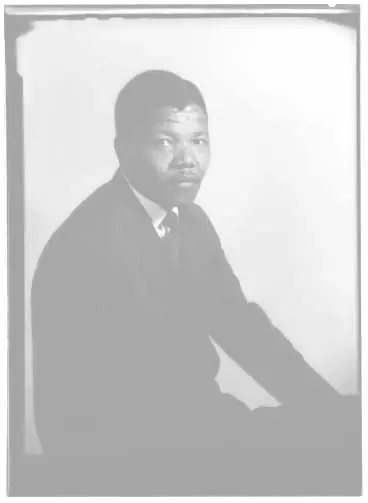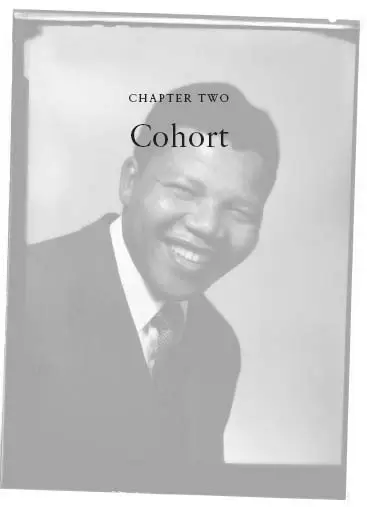Just as they refused to use the primitiveness of their economic system and ineffectiveness of their weapons as an excuse for shirking their sacred duty, so the present generation should not allow itself to be intimidated by the disparities current internal alignments seem to entail…But the full story of our past heritage remains incomplete if we forget that line of indigenous heroes who acted as curtain raisers to the major conflicts that subsequently flamed out, and who acquitted themselves just as magnificently. The Khoikhoi,5 from whom the bulk of our Coloured folk is descended, were skilfully led by Autshumayo (S.A.’s [South Africa] first black political prisoner to be exiled to Robben Island), Odasoa and Gogosoa. During the Third Liberation War in 1799 Klaas Stuurman took the unprecedented step of joining forces with Cungwa, Chief of [the] Amagqunukhwebe. Many people, including freedom fighters with a long record of struggle and sacrifice, speak contemptuously of [the] Abatwa. Yet several S.A. historians have written objective and warm accounts on their unconquerable spirit and noble qualities. Those who have read reports of the Sneeuberg battles between [the] Abatwa and the Boers, and more especially that between [the] Abatwa, led by their chief, Karel, and a commando of more than 100 Boers around the great cave at Poshuli’s Hoek, will have an idea of the important contribution made to S.A. history by a community that once were the sole occupants of our beautiful country.6 In numerous engagements they showed unusual courage and daring and would continue to fight desperately even after the last arrow had been fired. These are the men who strove for a free South Africa long before we reached the field of battle. They blazed the trail and it is their joint efforts that supply the source of the vast stream of S.A. history. We are the heirs to a three-stream heritage; an inheritance that inspires us to fight and die for the loftiest ideals in life. The title ‘African hero’ embraces all these veterans. Years later, more articulate and sophisticated personalities were to follow and, in the process, the tableau of history was enriched a thousand times – the Selope Themas, Jabavus, Dubes, Abdurahmans, Gools, Asvats, Cachalias,7 and now you and your generation have joined this legion of honour…
I am very fond of great dreams and I particularly liked yours; it was very close to my heart. Perhaps in your next dream, there will be something that will excite not only the sons [of] Zika Ntu, but the descendants of all the famous heroes of the past. At a time when some people are feverishly encouraging the growth of fractional forces, raising the tribe into the final and highest form of social organisation, setting one national group against the other, cosmopolitan dreams are not only desirable but a bounden duty; dreams that stress the special unity that hold the freedom forces together – [in] a bond that has been forged by common struggles, sacrifices and traditions.

.....................................................................................
Mandela transcribed portions of George W Stow’s The Native Races of South Africa: A History of the Intrusion of the Hottentots and Bantu into the Hunting Grounds of the Bushmen, the Aborigines of the Country, see note 6, this chapter.



‘Western civilisation has not entirely rubbed off my African background and I have not forgotten the days of my childhood when we used to gather round community elders to listen to their wealth of wisdom and experience. That was the custom of our forefathers and the traditional school in which we were brought up. I still respect our elders and like to chat with them about olden times when we had our own government and lived freely.’
.....................................................................................
Excerpt from his unpublished autobiographical manuscript written in prison.
1. FROM HIS UNPUBLISHED AUTOBIOGRAPHICAL MANUSCRIPT WRITTEN IN PRISON
Western civilisation has not entirely rubbed off my African background and I have not forgotten the days of my childhood when we used to gather round community elders to listen to their wealth of wisdom and experience. That was the custom of our forefathers and the traditional school in which we were brought up. I still respect our elders and like to chat with them about olden times when we had our own government and lived freely. It is always a great moment when I listen to an expert on our true history, culture, legends and traditions. We used to pester men like Mweli Skota, Selope Thema, Chief [Albert] Luthuli, Professor Z.K. Matthews, Moses Kotane, J.B. Marks and the amount of knowledge they had on African history was impressive.1 Their chief strength lay in the fact that their feet were deeply planted in African soil and they used scientific knowledge to enrich our heritage and culture. They could trace the movements of each section of our people from the North, discuss competently the various theories on the subject, the reasons for the many clashes between our people throughout our history, contact with the whites and even attempt to predict the future course of events. The old generation that inherited the oral traditions of our ancestors has disappeared or is disappearing and science has developed modern techniques of acquiring knowledge in all fields, but even the younger generation of today still values the experience of elders. Young men who are grappling every day with fresh practical human problems like to test the knowledge acquired from the classroom and books against the experience of their mature seniors who have been in the field.
2. FROM A CONVERSATION WITH RICHARD STENGEL
Yes, the boarding master is the man who is in charge of the students in a college, yes. Now this was a remarkable man…He once gave a sermon [about] a man whose house was haunted by evil spirits.
1 comment